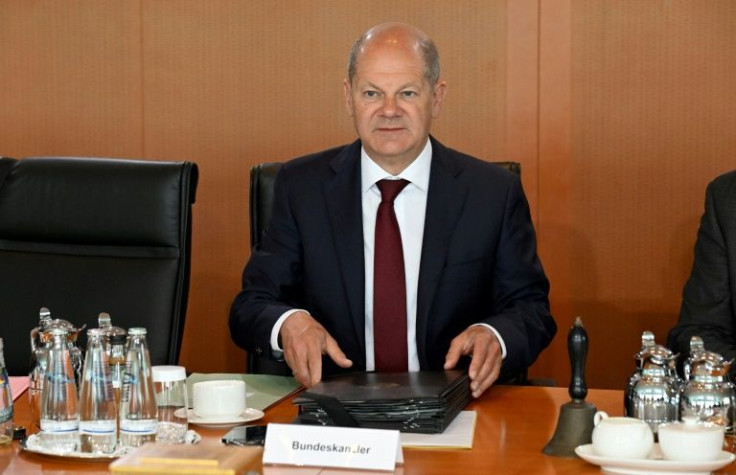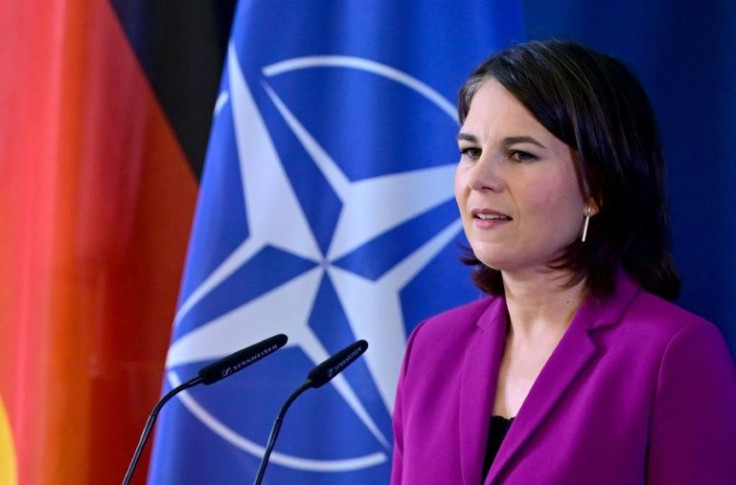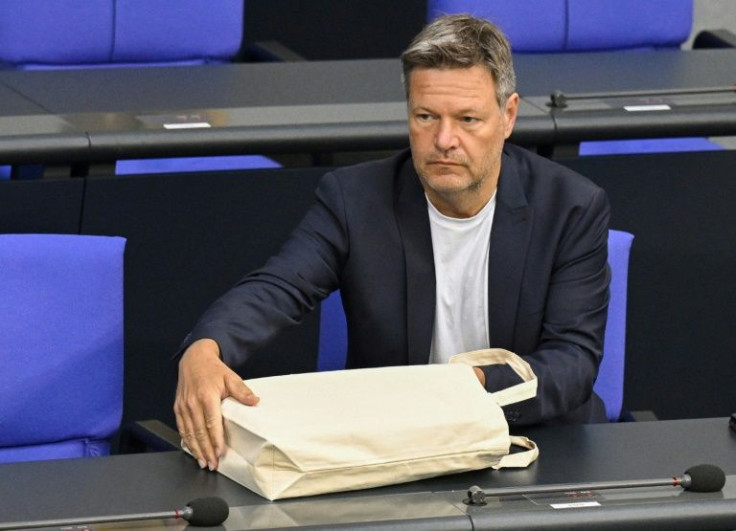Green Ministers Outshine Scholz As Stars Of German Government
German Chancellor Olaf Scholz has seen his popularity slide over his cautious stance on the war in Ukraine, eclipsed by two ministers from the Green party who have taken a more decisive approach.
Scholz, whose Social Democrats (SPD) are in power with the Greens and the liberal FDP, has faced a barrage of criticism over his perceived weak response to the war, including his hesitancy over sending heavy weapons to Ukraine.
Meanwhile, Green party Foreign Minister Annalena Baerbock and Economy Minister Robert Habeck have impressed with their more vocal approach, topping a recent survey of the country's most popular politicians.
Scholz sought to redress the balance with a speech to the Bundestag parliament on Thursday.

"(Russian President Vladimir) Putin still believes that he can forge peace by dictatorship, but he is wrong -- just as he was wrong about Ukraine's determination and the unity of our alliances," he said.
Scholz also tried to shake off accusations that he is dragging his feet in dealing with Moscow over fears of escalating the crisis.
"I want to say clearly that helping a brutally attacked country to defend itself is not an escalation but a contribution to repelling an attack and thereby ending the violence as quickly as possible," he told parliament.
But the chancellor has his work cut out to turn around public opinion.

In a nod to just how badly this reticent stance has played with the public, the SPD suffered a crushing defeat in a key regional election at the weekend -- losing to the conservative CDU with its worst-ever result in Germany's most populous state of North Rhine-Westphalia.
The Greens, meanwhile, almost tripled their score compared with five years ago to finish in third place and look almost certain to be part of the next regional government.
Der Spiegel magazine called the result a "personal defeat" for Scholz after he was heavily involved in the election campaign, appearing on posters and at rallies.
In a bid to win back the public, Scholz has in recent days given lengthy television interviews.

But in a devastating reading of his performance on screen, the weekly Focus said "his language is poor, his facial expressions monotone and his body language too understated."
According to Der Spiegel, the chancellor's communications strategy seems to revolve around one mantra: "Repeat, repeat, repeat."
Other media have accused him of stubbornly sticking to the same plan and ignoring what is going on around him.
"His party is plummeting, but the chancellor feels that he has done everything right... Doubts and questions rain down on him, but Olaf simply sits tight," said Der Spiegel.
Scholz's spokesman Steffen Hebestreit has defended the chancellor, suggesting that the public value his calm demeanour and would find it "inauthentic" if he tried to turn himself into Barack Obama.
But for political scientist Ursula Muench, Scholz does not come across as calm and measured but rather "imprecise" compared with his colleagues from the Green party.
Baerbock, meanwhile, has turned around her public image after a series of blunders during the 2021 election campaign, coming across as clearer and more decisive than Scholz in her response to the Ukraine crisis.
The 41-year-old former trampolinist has become the face of Germany at international summits, from the G7 to NATO, and in early May became the first German minister to visit Kyiv.
Habeck, meanwhile, has impressed with his dedication to weaning Germany off Russian energy.
For the first time in their 42-year history, according to Der Spiegel, the Greens are being judged not on "expectations and promises" but on their performance in government.
"The strong moral underpinning of the Greens' policies and the fact they openly struggle with their own principles comes across as approachable and therefore very credible," according to Muench.
"Of course, this increases their clout compared with the chancellor."
She therefore predicts an "increase in tensions" between the Greens, the SPD and the FDP, with life not expected to get easier for Scholz any time soon.
© Copyright AFP {{Year}}. All rights reserved.





















